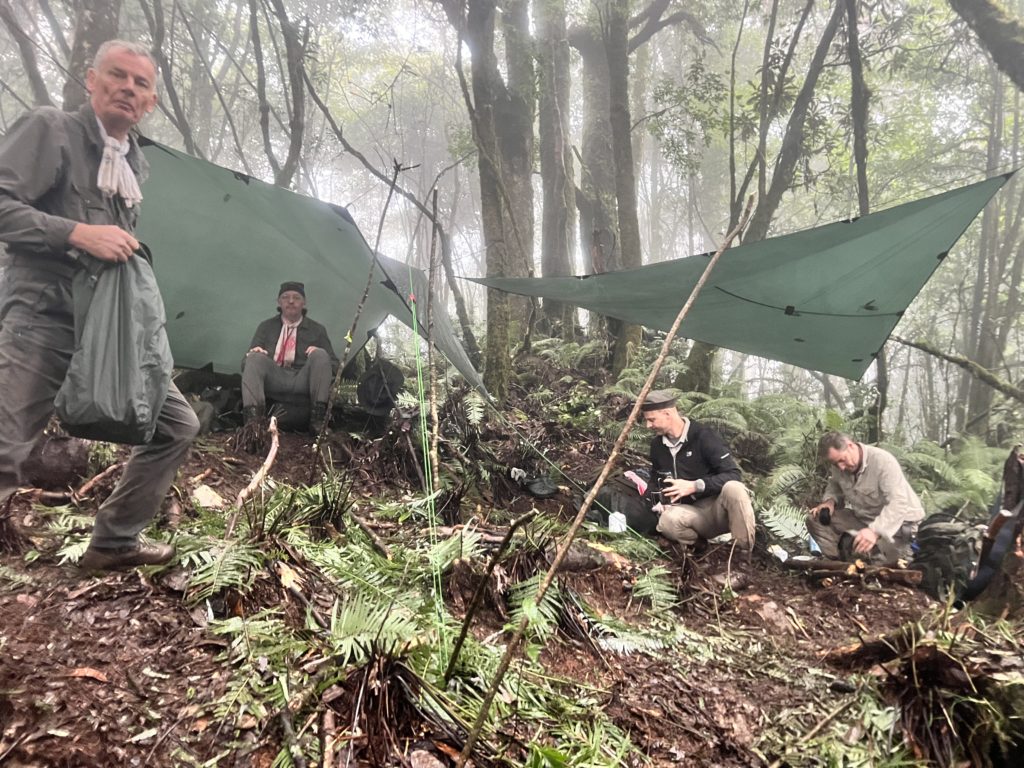Whether you’re in a plant room of mission-critical facility or in the middle of a tropical rainforest, an awareness of your environment and attention to detail is vital – it matters
In an era where I often hear ‘meh’; ‘that’ll do; ‘can’t be bothered’. Where there’s often a lack of attention to detail, a reluctance to practice, to put in the reps. You can only get away with it for so long. When it comes to the crunch, those people are often found wanting.
As the Spartans would say, sweat more in training, bleed less in war.
This was most apparent on our jungle expedition to the Arunachal Pradesh province, Northern India, in the foothills of the Himalayas where Mother Nature put all our skills, practice and resilience to the test.
I’ve been going on woodland camps for a number of years.
We are taught by Matt, an ex-Parachute Regiment Captain who specialised in jungle warfare and has a martial arts academy which incorporates woodland camps and more recently, jungle expeditions.
Months before each trip we train carrying the full 22kg pack, the full weight of all our food for the entire trip plus 4 litres of water which we will replenish along the way from rivers and lakes. We train in the kit and especially the boots we will take into the jungle. Walking in wet and dry conditions, through forests, up and down as many hills we can find, working out where you have ‘hot spots’ on your feet, how to overcome and avoid blisters with different combinations of socks. Everything it tested and drilled. We put in the reps to improve our fitness and test our kit. Practice, practice, practice. You do not want a blister on day one in the jungle.
We are taught a specific method for packing our kit.
As its from military practice, everything is done for a reason. Honed over centuries in the most adverse conditions where your life can literally depend on the smallest of details.
Now, most of us on the camps are not current or ex-military, so I do believe in having the humility to follow, or at least listen to, those who have gone before us, and who have more first hand experience.
We only pack essential equipment, as what you bring, you have to carry. In the army we’re told, that they will cut toothbrushes in half to save weight!
We group things in dry bags in a logical way. Dry kit in one bag, med kit in another, Day bag containing essentials in another. Everything is in dry bags. Dry kit must stay dry.
Insurance documents in the same top pocket in everyone’s pack (if you’re unconscious or bitten by a snake, and Matt needs helicopter evacuation for us, or next of kin info, he wants to be able to find the documents without searching our entire pack or our person.
Matt follows the same routine in case he’s the one who’s down.
We practice setting up camp so we are fluid in the execution of our duties. To the point where we can make and break camp in the dark.
Now, on a nice summers day, throwing you kit around and laying it all out on the ground isn’t usually a problem. If your car is nearby, you can brings bags and bags of ‘just in case’ stuff. Extra jumpers, a two ring stove, a table and matching chairs have been known to appear along side the obligatory basha!
But in the jungle. You only have what is on your back. Discipline is key. Practice and muscle memory get you through.
India was tough.
We hadn’t experienced much rain on previous trips, but in India it felt like it never stopped raining.
And with the rain came the leeches. They would crawl up your boots or drop from the trees. We were given white welcome scarves by our guides on our arrival which we wore around our necks. By the end of the trip mine was pink from my own blood extracted by the leeches.
It was hot, wet, humid and muddy. The pack felt heavier with every slip and stumble. The first half of the route was up, the second half down. The steep climb through the dense forest was only broken by steeper, shorter drops with the weight of you pack driving you down and then holding you back and you begin to climb once more.
Proper knees to chin, four points of contact climbing.
If day one was hard. Day two was harder.
We continued to climb. We go to 11,000 feet and now the temperature dropped and the wind picked up. The only good thing about the cold was that it deterred the leeches!
The guides had underestimated our speed across the terrain. ‘you guys are slow’ they grumbled. They were used to groups of three or four, travelling light across ground they knew. We were a group of 24, with a lot of weight and not a lot of experience.
As the day wore on, it was clear that we were not going to reach the designated area for camp. With less than 2 hours of light remaining, the decision was made. We had to stop and camp where we were. On the ridge.
We were cold, fatigued, hungry and the clock was ticking, light was fading.
This is where the training kicks in.
Our section was given an area and we found suitable trees for our basha’s and hammocks. Packs down, machete’s out, we cleared the area between the trees and checked for deadfall above the site – the biggest cause of injury in the army outside of combat.
Auto pilot kicks in, rain cover off pack, open pack, tarp out, close pack, rain cover back on. Keep your kit dry. Pay attention. Be bothered.
By now its blowing a hooley. Driving rain whip’s across the ridge blowing our tarps like a kite while we tie to one tree and then the next. With the tarp tied down we can finally get some shelter from the wind and rain. But not for long. With ourselves and the kit under the tarp, we take out the hammock and tie that between the trees. And so on and so on, following the process, one step at a time until camp is set.
As your hands are turning blue tying the rain soaked para cord around the trees and the rain is stinging your face as the light begins to fade, its easy to downward spiral. Giving up is simply not an option. The phrase I always fall back on is ‘the cavalry isn’t coming’! Persevere. Follow the process. Remember your training.
With our camp set, we get out our food and cook kit and eat under our tarps while sharing stories as the wind and rain continues.
Time for bed, its out of your wet kit, clean up, and into your dry kit and into your hammock for the night. I was woken a few times during the night by the wind and rain hammering against the side of the basha, and to check if the rain had started to soak through and into your hammock. But all good, the preparation had paid off.
By morning the rain had stopped and we broke camp, packing the kit away as we’d be taught as we’ll be doing the same thing tonight and conditions could be even worse.
We hear stories in the morning from those who didn’t follow the drill, hadn’t put in the reps. Dry kit now wet, sleeping bags wet, blistered feet, short cuts taken, consequences felt. A hard trip for them, just got a little bit harder.
Bother to be bothered, drill, drill, drill.

